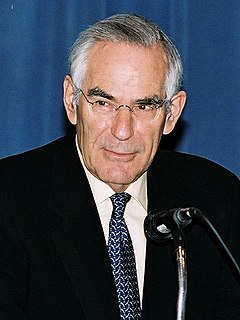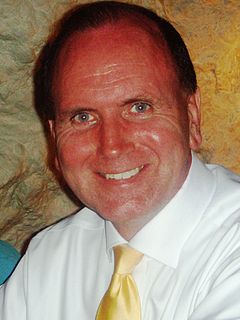A Quote by Katherine Paterson
The challenge for those of us who care about our faith and about a hurting world is to tell stories which will carry the words of grace and hope in their bones and sinews and not wear them like fancy dress.
Related Quotes
Hope is critical to both faith and charity. When disobedience, disappointment, and procrastination erode faith, hope is there to uphold our faith. When frustration and impatience challenge charity, hope braces our resolve and urges us to care for our fellowmen even without expectation of reward. The brighter our hope, the greater our faith. The stronger our hope, the purer our charity.
So it can be for us as we allow the stirrings of hope to motivate us to action; and then as we act so that our hope becomes faith, that faith gives us power and enthusiasm for the principles of the gospel, which leads us to further action. Soon, we are lifted out of the state of hopelessness, and we begin to aid those around us by working to make the world a better place, rather than languishing in misery watching the world go by without us.
When we can't hold back, or set boundaries, on what comes from our lips, our words are in charge-not us. But we are still responsible for those words. Our words do not come from somewhere outside of us, as if we were a ventriloquist's dummy. They are the product of our hearts. Our saying, "I didn't mean that," is probably better translated, "I didn't want you to know I thought that about you." We need to take responsibility for our words. "But I tell you that men will have to give account on the day of judgment for every careless word they have spoken" (Matt. 12:36).
I've often wondered about the shyness of some of us in the West about standing for these ideals that have done so much to ease the plight of man and the hardships of our imperfect world. Let us be shy no longer. Let us go to our strength. Let us offer hope. Let us tell the world that a new age is not only possible, but probable.
As we get older it is our short term memory that fades rather than our long term memory. Perhaps we have evolved like this so that we are able to tell the younger generation about the stories and experiences that have formed us which may be important to subsequent generations if they are to thrive.I worry though, about what might happen to our minds if most of the stories we hear are about greed, war, and atrocity
to become aware of the ineffable is to part company with words...the tangent to the curve of human experience lies beyond the limits of language. the world of things we perceive is but a veil. It’s flutter is music, its ornament science, but what it conceals is inscrutable. It’s silence remains unbroken; no words can carry it away. Sometimes we wish the world could cry and tell us about that which made it pregnant with fear--filling grandeur. Sometimes we wish our own heart would speak of that which made it heavy with wonder.
Why do we tell stories? It's because we want to connect to people, we want to tell them who we are, we want to tell them a story that affects us, that impacts us. And to help a young filmmaker doing a short or independent film is my testament, I think, is my desire to really make sure that our younger generations get passed along all the elders' experience and to literally have the image - to literally carry them on their shoulders and say, 'This is what the world is. This is how the world operates. Let me show you how.'
Each of us is comprised of stories, stories not only about ourselves but stories about ancestors we never knew and people we've never met. We have stories we love to tell and stories we have never told anyone. The extent to which others know us is determined by the stories we choose to share. We extend a deep trust to someone when we say, "I'm going to tell you something I've never told anyone." Sharing stories creates trust because through stories we come to a recognition of how much we have in common.



































